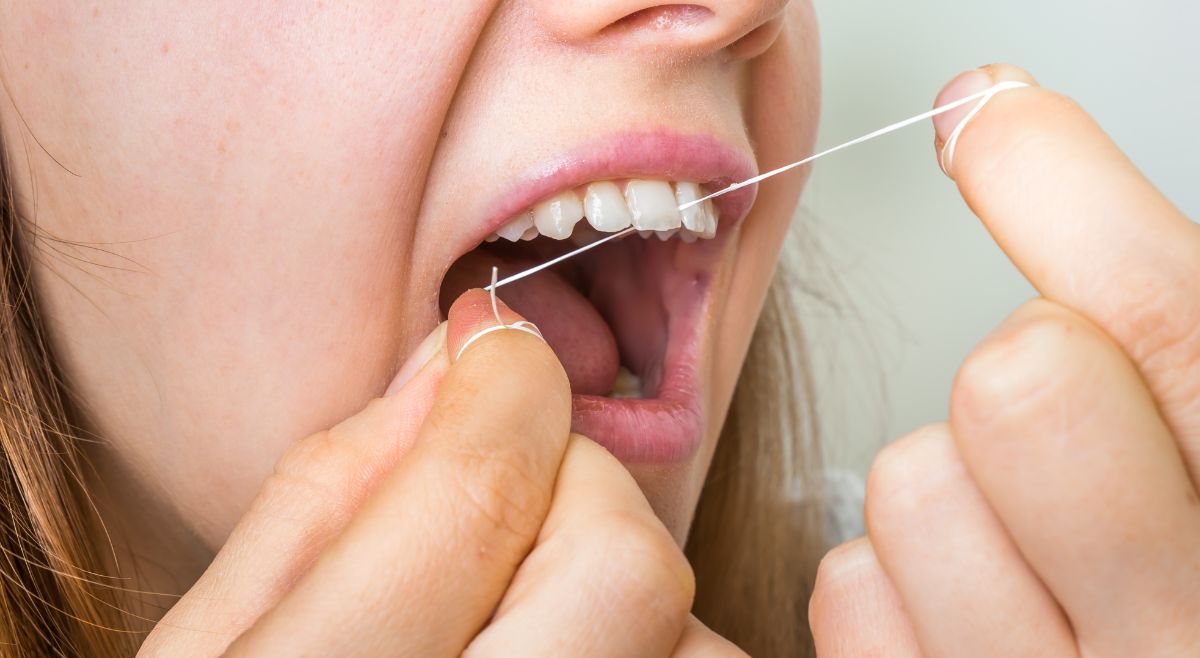- By Ridam Sharma
- Fri, 28 Nov 2025 10:04 AM (IST)
- Source:JND
Lesser-Known Facts About Flossing: Flossing is a part of your oral routine, like brushing teeth, scraping tongue and washing mouth and especially, flossing. It is done using a thread (dental floss), which removes plaque or food particles from between your teeth. The practice of flossing keeps you safe from gum diseases, plaque, tooth decay and even bad breath. Experts recommend flossing once a day. Flossing is one of the easiest tasks in the world; you just need to slide your floss in a C-shape between each of your teeth and move it up and down to remove all the hidden food particles or germs. To learn more, here is a list of more than 20 lesser-known facts about flossing and its benefits, according to Healthline.
List Of 20+ Lesser-Known Facts About Flossing For National Flossing Day 2025:
1. National Flossing Day is celebrated every year fourth Friday of November. This year, it is celebrated on November 28th to highlight the often-overlooked benefits of flossing beyond basic plaque removal.
2. Pre-brushing flossing helps to loosen debris in the mouth, which enables toothpaste to be absorbed in the interdental areas of your gums better.
3. In a modern era, flosses of different flavours are also available in the market, like bacon, even wasabi, and more. This might make flossing more appealing.
4. If you won't take flossing seriously, you might suffer from tooth plaque, which may become fairly hard as tartar under the gumline, causing damage to the enamel and discolouring it unless removed.
5. Periodontal bacteria due to uncleaned plaque can be linked to the plaque on blood vessels and can result in heart attacks or strokes.

Lesser-Known Facts About Flossing (Image Credit: Canva)
6. Flossing cleans the parts of the mouth that a toothbrush cannot reach, and eliminates bad breath bacteria way better than brushing teeth.
7. When flossing, one should always floss back molars, so that the bigger surface areas are not being exposed to decay because of their size.
8. The early gum soreness caused by flossing is an indication of inflammation, yet correct technique can avoid the cuts during cleaning of the floss under the gumline.
9. Daily flossing fights unseen acids of plaque, which produces gum disease, which is associated with respiratory problems and complications during pregnancy.
10. As little as 18 inches of floss is required each session and is wrapped around fingers with a 1-2 inch working end that curves in a C-shape.

Flosses (Image Credit: Canva)
11. Flossing in unconventional places, like in the shower or when you are stuck in a jam, makes this habit a part of your life.
12. Plaque tartar not only causes cavities but also is a major reason for continuous bad breath since it traps the food matter.
13. Flossing is associated with oral infections that lead to other ailments like diabetes and pneumonia through bacterial transmissions.
14. Cleaning under the gums is necessary in the prevention of gum diseases, although it is commonly avoided because of difficulties in reaching the gums.
Also Read: Dental Hygiene: 5 Compelling Reasons To Prioritise Daily Brushing And Flossing
15. Flossing is a key step for complete oral health. Brushing without flossing will not remove interdental plaque.
16. Flossing across gums is irritating, whereas up-and-down flossing is quite effective and painless.
17. Floss removes stuff which does not come off by brushing, which puts the patient at risk of cavities and directly causes halitosis.

Lesser-Known Facts About Flossing (Image Credit: Canva)
18. Flossing once in a while is better than none, but the best protection of the gums and teeth occurs when flossing is done daily.
19. Skipped flossing below the gumline removes enamel more rapidly than surface accumulation.
20. Do flossing while watching TV or a podcast to make it a habit and not a job.
Also Read: How To Brush Your Teeth And Floss Properly? Doctor Lists Common Mistakes To Avoid
21. Bacteria found in spaces not flossed cause swollen gums and high risks of periodontal dangers.
22. When done correctly, flossing will target all surfaces of the teeth, which cannot be done with quick and fast flossing.
Each of the above-mentioned lesser-known facts about flossing highlights how important the practice is for our oral hygiene and overall health. Therefore, this National Flossing Day 2025, let’s promise each other to take extra care of ourselves with a proper oral routine, including flossing.





